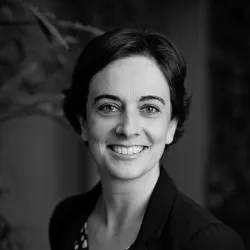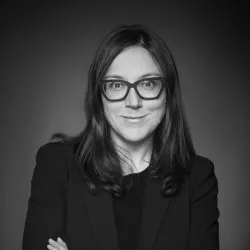
Alumni Newsletter: Reflections from the Editors

“the feeling that you can no longer rely on the world, but you have to make your own world”
Edward W. Said in Parallels and Paradoxes: Explorations in Music and Society
“Each day I walk the path to the pond/ it should be different, it’s not. Everything/ has changed, nothing has changed.” These words from Sylvia D. Hamilton’s poem The Pond resound deeply as the strangeness brought by the COVID-19 pandemic has slowly settled into our everyday lives and relationships. The virus has profoundly disrupted our institutions and societies, while entrenching further preexisting systemic inequities through various forms of insidious “social triage”, as termed by the honourable Louis LeBel. Everything has changed, but, for too many, in a highly predictable manner.
As the pandemic lays bare and exacerbates the social, racial, and ecological injustices that divide our societies, attention is increasingly turning to the transformative changes required to achieve a truly just post-pandemic future. The contributions we received for the current issue of the Pierre Elliott Trudeau Foundation Alumni Newsletter engage in these crucial discussions at a fundamental level by bringing epistemological, ontological, methodological, and ethical insights into how to think about and effect change.
Rajdeep S. Gill and Fabiola Nabil Naguib’s collaborative piece aligns with the worldings of other contemporary feminist, queer, and trans authors in Canada who are advocating for a turn to ethical love as a lens from which to critically examine this complex historical juncture. We can observe, for example, fascinating parallels between Gill’s and Naguib’s concept of heart cognition and Kai Cheng Thom’s notion of accountable love in I Hope We Choose Love: A Trans Girl’s Notes from the End of the World (2019) as methodologies and onto-epistemologies for change. Heart cognition, Gill and Naguib contend, “is a divergent form of awareness that can attune us not only to ways of living and being that are iniquitous or incongruent but also to what is individually and collectively liberatory”. This emphasis on the perhaps paradoxical need to devise collective forms of knowing and feeling are also at the core of the work of Indigenous poets such as Joshua Whitehead and his edited collection Love After the End: An Anthology of of Two-Spirit and Indigiqueer Speculative Fiction (2020).
Gill and Naguib invite readers in the newsletter to consider the following: “What if we energized our most profound feelings and knowings, rewilding our hearts, as a map for self and world inquiry?” This entails an ethical journey of care for the self and care for others that repositions questions of affect at the centre of critical enquiry. A theorist of affect himself, Lucas Crawford’s poetic and critical worldings have systematically interrogated normative structures of knowledge and being. In his sharp contribution to this newsletter, STATEMENT ON POTENTIAL CONTRIBUTIONS TO DIVERSITY---An Academic Job Application Document, as a Poem---, Crawford offers an ironic critique of the pervasive impact of institutionalized language, where diversity has too often become an empty signifier that allows for temporary superficial gestures of inclusion instead of actual sustained change. The poem concludes with these lines: “Yeah. Students. I cannot prescribe or predict what may be/ my ‘potential for working with diverse student populations’/ except to say that I bring my disintegrating self to work,/ make only big mistakes, and allow the same.” Here the narrative voice positions disorientation, vulnerability and failure as worthy tools for “self and world inquiry”, to borrow Gill’s and Naguib’s words.
From her perspective as both researcher and clinician, Magaly Brodeur also calls members of the Pierre Elliott Trudeau Foundation to self-inquire as an essential first step to respond to the psychosocial impacts of the COVID-19 pandemic. Effecting change starts with self-knowledge and the recognition of the limits of one’s experiences and disciplinary perspectives, thereby allowing the expression of “constellations of knowledges”, to use de Sousa Santos’ evocative imagery. Developing unexpected cross-disciplinary alliances, as Brodeur invites us to, could foster innovative responses to the pandemic and the measures adopted to confront it. The honourable Louis LeBel’s reflection on the limits of Law and judicial processes to respond to the socioeconomic inequalities made so visible by the pandemic illustrates the importance of interdisciplinary dialogues to tackle complex, multifaceted issues.
It is this embrace of the unexpected, together with the return of the familiar that stands at the core of Sylvia D. Hamilton’s textual and visual contribution to the newsletter. The traces of forgotten words and melodies surface in this piece, intimately fusing the present with the past in their precious ordinariness and their “vibrating range of difference”, in Adrienne Rich’s words opening this piece. The narrative voice wonders about tomorrow; an uncertain future yet to come and to be shaped, so here we invite you to go back to this space, where “Everything has changed, the world has changed./… It should look different, it doesn’t, it doesn’t.” But it could.



